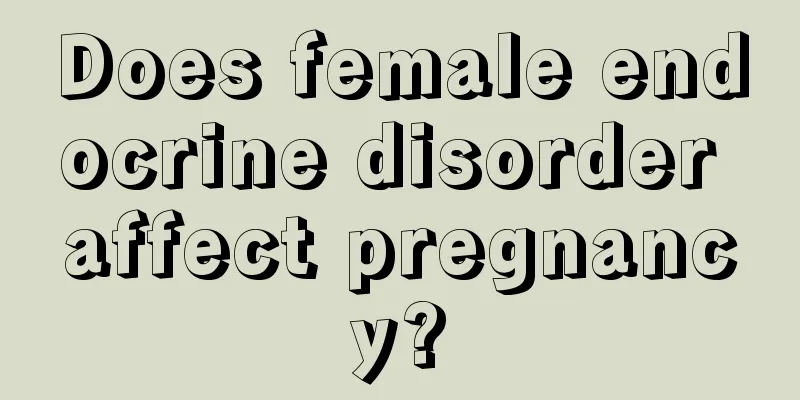What causes recurrence of uterine fibroids? Mainly these

|
Uterine fibroids do not have obvious symptoms. The menstrual volume and period may be prolonged, and there may be some changes in daily toileting. Although uterine fibroids are a type of tumor, they are not that scary. They are generally benign tumors that can be cured in time. However, uterine fibroid surgery is prone to recurrence. So what are the reasons for recurrence of uterine fibroid surgery? What are the causes of recurrence of uterine fibroids? The chance of recurrence of uterine fibroids depends on the number of fibroids, age, genetics, personal eating habits, etc. Most patients experience recurrence 2-5 years after surgery, and the recurrent fibroids do not necessarily grow at the same location as the original fibroids. In terms of age, uterine fibroids are more likely to occur in women of childbearing age with active ovarian function. Among premenopausal women, the younger the age at surgery, the higher the recurrence rate of fibroids. The estrogen level in women who are approaching menopause drops significantly, and the chance of developing uterine fibroids is significantly lower than that of young women with normal estrogen levels. In addition, if the patient takes supplements containing estrogen, such as royal jelly, hormone-raised animals and plants, etc., the chance of fibroid recurrence may increase. Therefore, women with uterine fibroids should pay more attention to a balanced diet, exercise, maintain a regular life, and not blindly pursue the effects of supplements. Uterine fibroids may have no clinical symptoms at all, or they may manifest as increased menstrual flow, prolonged menstrual period, frequent urination, urgency, constipation, difficulty defecation, etc. Most recurrent uterine fibroids have no clinical symptoms. Therefore, patients who have undergone surgery for uterine fibroids cannot assume that the fibroids have been cured and they can rest easy from now on. Regular follow-up examinations should be performed, generally every 3-6 months. What to do if uterine fibroids recur? If the diameter of the fibroid is only 2-3 cm and the patient does not feel any discomfort, you can continue to observe. Surgery may be considered for fibroids that are asymptomatic but larger than 5 cm in diameter. Although some fibroids are small in size, they can cause increased menstrual volume, prolonged menstrual periods, frequent urination, urgency, constipation, difficulty defecation and other symptoms, and require active treatment intervention. |
<<: Do you know how to use sunscreen correctly?
>>: The difference between primer and BB cream, don't confuse them again
Recommend
What should I do if there is less or no lactobacillus in the leucorrhea examination?
Vaginal secretions often occur in women, the most...
What are the symptoms of poor uterine recovery after cesarean section?
Women can give birth through natural birth or cae...
Pregnancy month age check table for gender
When female friends think they are pregnant, they...
Will kidney disease be passed on to children? The truth is...
Young expectant mothers and fathers with kidney d...
Why is it painful to urinate?
Some people experience pain when urinating. In fa...
Specific arrangements for prenatal check-up items and time during pregnancy
After women become pregnant, they need to undergo...
What is the meaning of the Analects? How is the argumentation style of the Analects different from that of Mencius?
Since the Song Dynasty, The Analects has been lis...
How many months of pregnancy can you have a cesarean section?
Caesarean section is a relatively common method o...
What is the cause of excessive vaginal discharge before menstruation?
The secretion of leucorrhea is a normal body func...
What are the requirements for brides to wear jade bracelets? How to wear jade bracelets according to age
The jewelry that everyone wears reflects their cu...
Jelly-like leucorrhea during ovulation
Secretion is a milky white, stretchy, gel-like su...
Confirmed: Detected positive! Hundreds of people in Beijing were infected, and there is no specific medicine yet
Recently, a "Suggestion Letter to All Alumni...
How to tie long hair beautifully and simply
Hair tying steps, how to make hair simple and bea...
Will oxygen inhalation during high altitude sickness lead to addiction? Here’s what you should know before traveling to high altitude areas!
gossip "When you have altitude sickness, you...









